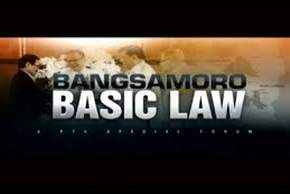From the Website of PRWC CPP-NPA-NDF - PROF. JOMA
links: http://josemariasison.org/joma-sison-polls-a-farce-but-dont-boycott-it/
By: Gideon Lasco
@inquirerdotnet Philippine Daily Inquirer 01:51 AM November 1st, 2015 http://globalnation.inquirer.net/130277/joma-sison-polls-a-farce-but-dont-boycott-it AMSTERDAM—Jose Maria Sison, the founding chair of the Communist Party of the Philippines (CPP), has been in exile here since 1987. Even though he has already long stepped down from the position of CPP chair, his voice remains significant, especially in light of recent attempts to revive the protracted peace talks with the government. In July, Speaker Feliciano Belmonte visited and they had a “friendly and informal” meeting to talk about the negotiations. Sison’s views on Philippine politics have attracted attention. Recently, his reported endorsement of Davao City Mayor Rodrigo Duterte’s presidential candidacy made it to the news—even though he had to refute it. In perhaps an ironic way, he has become an “elder statesman”—one of the few people in the political world who have lived long enough to talk about President Aquino as a teenager or Vice President Jojo Binay as a young human rights lawyer. And while many would quarrel with his ideology, few would question his steadfastness to them. In a nation of “balimbing” (turncoats) and political adulterers, such authenticity is a breath of fresh air. Here are excerpts from an interview which began in Utrecht, Sison’s home of exile where I went to visit him, and continued through e-mail correspondence: Throughout the years, you have maintained that elections are a show put up by the government to create a semblance of democracy. Do you still hold this position? Sison: I still hold the position that the elections are controlled by the exploiting classes of big compradors and landlords and even by foreign interests that wish to be shielded from the people’s view and outrage. The people are limited to a choice of reactionary politicians and cliques that will exploit and oppress them. Control of the elections by the exploiting classes is achieved though the large amounts of money needed to run a campaign, the use of the big media owned by the press lords, access to private and official armed personnel and since 2010 pre-programming of the automated electoral system. If so, should Filipinos exercise their right to vote, or should they boycott the elections? I share the view of the revolutionary movement that reactionary elections are a farce. But there is no need to apply a policy of boycott on these elections by progressives and allies, unless the process is as bad as the 1981 and 1984 elections of the Marcos dictatorship, in view of the fact that progressives and allies can manage to get some executive and legislative seats and expose from the inside what is wrong with the ruling system. The elections of 1986 were also bad but critical participation by legal progressives and allies was necessary for the subsequent claim that Marcos cheated and deserved to be overthrown by the people’s uprising. Communists can work within reactionary institutions and processes, including the electoral process, but cannot declare themselves publicly as such because to do so would invite repressive measures, notwithstanding the legal argument that it is no longer illegal to be a communist from the time the Anti-Subversion Law was repealed in 1992. But no real communist will declare that the electoral process of the reactionary system is the way to social revolution. A communist can appreciate the noncommunist and progressive Makabayang Koalisyon ng Mamamayan (Makabayan) for participating in the elections, getting some seats and more importantly doing its best to uphold the rights and interests of the people and raise their level of consciousness toward patriotic and progressive principles and goals. There have been instances when the ruling family failed to secure positions, as in the electoral fights involving Grace Padaca vs the Dys of Isabela, or Ed Panlilio against the Pinedas and Lapids of Pampanga. Aren’t they proof that it is possible to subvert the system? Your examples have not subverted the ruling system. Instead, they (the Padacas and Panlilios) are subverted by the ruling system. Ultimately, they become the target of charges of corruption and other kinds of venalities. But if you look deeper at their starting points in the business of elections, they became well known for something popular but they were also supported in their electoral campaigns by bureaucrats and landlords who competed with their fellow bureaucrats and landlords. Padaca became popular as a radio broadcaster hitting hard the Dy dynasty for corruption, land grabbing, closing down public hospitals and so on. But she also relied on landlord politicians in all of the Isabela towns. Panlilio delivered strong sermons against the rich and had a simple lifestyle. But he relied also on landlords close to the Church who had been disgusted by the bigger and more powerful landlords. You have been active on Facebook. What are your reflections on how social media is affecting the political process? Can the participatory nature of social media undermine traditional media that in your writings you have described to be controlled by the ruling class? Social media are by far more open, especially in terms of space, than the traditional media. But traditional media have invaded social media. Like any tool, social media can be used for good or for bad. The political operatives of the exploiting classes can hire communications experts and troll brigades to churn out pro-imperialist and reactionary propaganda. The traditional media have resorted to online editions to reach the social media users. TV and radio broadcasting stations remain strong in relation to social media and can be easily accessed by the portable gadgets. They remain strong especially in broadcasting sports and entertainment. Amid internal turmoil, the Iglesia ni Cristo (INC) recently attempted to make a show of force at Edsa. How do you think this incident will affect their voting in 2016? I think that the INC leadership is maintaining its hold on most of the INC following. But it has lost a significant part of its membership and might be swamped by financial problems because of its extraordinary expenses. The attempt to make a show of force on Edsa offended quite a number of people. Do you believe in their power as a voting bloc? I think that the voting power of the INC is not so big even at 1.5 or 2 million people. Makabayan has more people. What about the Left? Does it constitute a voting bloc? The Makabayan is at the moment a coalition of eight progressive party-list groups. They have a common platform. They can agree to support common candidates for executive and legislative officials at all levels, even as each of the Makabayan progressive party-list groups must seek votes for the general electorate and certain sectors for their candidates. In the Lower House, their elected officials constitute a patriotic and progressive voting bloc in accordance with common principles and policies. Very recently, Binay was “grilled” by students at University of the Philippines Los Baños but two very different discourses emanated from this event: one lauded the students for their courage to ask hard questions, but the other depicted Binay as once again persecuted by the elite. Is he? In what way or ways is Jojo Binay different from the ruling class? As mayor of Makati, Jojo Binay is known to have expanded social services for the people. But he has been subjected to Senate and Ombudsman investigation on charges of corruption and is also reported to be eventually the subject of a warrant of arrest. There are those who think that Binay has been subverted by the ruling system, instead of subverting it, and has become a full-fledged member of the bureaucrat capitalist elite. How does Binay resonate with the masses? Coming from the lower class, Binay knows how to campaign in a manner appealing to the CDE crowd. He knows the populist phrases to turn them on. He is capable of playing the underdog against Aquino and Mar Roxas. He has a national system of scoutmasters and sister cities and sister municipalities that helped him become the Vice President. His problem is that he will be further discredited when the warrant of arrest is issued against him. Mar Roxas comes from one of the privileged families of the country. Does this fact rule him out in your eyes as an eligible candidate? Indeed, Mar Roxas comes from one of the most privileged families of the country. He is the grandson of President Manuel Roxas and the son of the late Sen. Gerry Roxas. He is being held responsible for several bunglings, like the transport mess, the Zamboanga City military operations, the lack of timely and adequate relief to the victims of the Supertyphoon “Yolanda” and some involvement in the Mamasapano incident. He is also being criticized for mimicking the poor and yet advocating nothing to lift the people from unemployment and poverty. He is known as a dyed-in-the-wool neoliberal in economics. Grace Poe’s campaign poster in 2010 featured a silhouette of FPJ in the background. What is your opinion on the influence of show biz in politics? I think that Grace Poe benefited in 2010 from being the daughter of a presidential candidate who was widely considered the winner in 2004, if not for (President Gloria) Arroyo’s cheating. It does not speak well of a social system that a movie superstar can turn his celebrity status to political capital because the general run of high politicians are corrupt and incompetent and can offer no one better than a neoliberal economist who has to cheat in order to be reelected. In fairness to her, I should add that Poe has proven her mettle in the Senate on major issues like Mamasapano, Purisima and the MRT mess and, as a result, has earned the position of No. 1 in presidential poll surveys. Is Miriam Santiago’s late entry to the field a game-changer? How would you compare her run now with that 23 years ago? She is not a game-changer. She is more of someone trying to catch up with the front-runners. She is now attracting flak by having Bongbong Marcos as her running mate. In this regard, she has made a mistake. She must be desperate for campaign resources. She was far fresher and probably had bigger resources 23 years ago. Will the fact we have had two female Presidents (Cory, GMA) in recent history affect Grace Poe or Miriam Santiago’s candidacy? I do not think that any of the male Presidential candidates will directly attack Poe or Miriam as predetermined to be no better than Cory Aquino or Gloria Arroyo. Lower-level campaigners may satirize them in order to appeal to patriarchalism or male chauvinism. But this will not count much in a competition of platforms and track records. Many Filipino pinned their hopes on a Duterte candidacy. How can you explain this clamor for a strong leader? The Philippines has had Presidents strong on puppetry to the US, corruption and violations of human rights. Marcos has been considered the strongest and worst for being a fascist dictator. But his successors have been strong on servility to the US, corruption and brutality, despite the existence of legal opposition parties. Duterte has been strong on offering peace and a coalition government with the NDFP (National Democratic Front of the Philippines) and also on federalism and fighting criminality and corruption. There is nothing wrong if a President is strong against powerful adversaries on the issues of upholding national sovereignty, the democratic empowerment of the working people, economic development through land reform and national industrialization and the promotion of a patriotic and progressive culture. Thus, he or she wins the strong support of the people. While vacillating on whether to run for the presidency, Duterte has manifested a number of good advocacies but has not shown any full and comprehensive platform that manifests a justly strong leadership responsive to the people’s strong demands for national and social liberation. Bongbong Marcos’ candidacy has reminded people of martial law—which for many is bad thing, but for others a good one. How will his being a Marcos affect his chances? Bongbong has his Ilocos Norte and Leyte bailiwicks. On a nationwide scale, he can probably get some 15 percent of the voters who are impressed by the Marcos fascist regime and by Bongbong himself and disgusted with the Aquino record. I think that at least 80 percent of the voters can remember and therefore detest the extreme corruption and brutality of the Marcos fascist regime. The people, especially the many Marcos victims of human rights violations all over the country, will denounce Bongbong as principal beneficiary of the ill-gotten wealth of his parents and he will be held to account for scheming to prettify the corrupt and brutal record of his father. Do you see a second Marcos presidency? I predict that Bongbong will not become Vice President and therefore will not become President after being Vice President. He himself is aware of his vulnerabilities. That’s why he scaled down his presidential ambition to VP. What do you think of the vice presidential candidates? They are too many VP candidates for me to describe and weigh each one. I presume that each one thinks of having a good chance of winning because the vote for the VP will be fragmented. But I think that Chiz Escudero is the strongest because of his own standing and his being teamed up with the No. 1 presidential candidate. The poll surveys prove my point. How will the 2016 elections affect the prospects of a peace deal between the CPP-NPA (New People’s Army) and the government? Poe, Duterte and Binay have made declarations in favor of resuming the formal talks. I estimate that Miriam will be for the resumption of talks. Roxas has not made any public declaration to resume the formal talks. Even if he makes such a declaration, he has to clarify whether he will continue Aquino’s policy of seeking only the surrender and pacification of the revolutionary forces and the people and disregarding the demands of the people for social, economic and political reforms as foundation of a just and lasting peace. (The author is a doctor of medicine and is currently working on a postdoctorate degree at the University of Amsterdam.)
OTHER HUMAN RIGHTS PROMOTIONS WEBSITES
http://www.philippineinsurgency.co.nr/
PROTECTION AND PROMOTION OF HUMAN RIGHTS
-----------------------------------------------------------------------------------------------
------------------------------------------------------------ ----------------------------- |









































0 comments:
Post a Comment